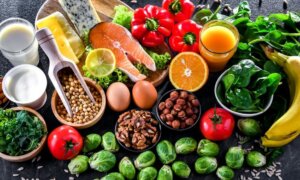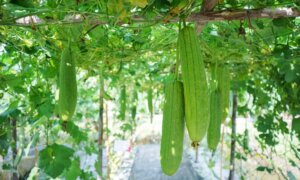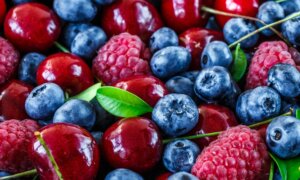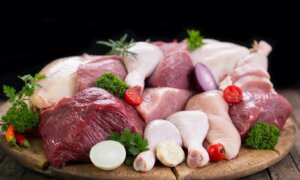Our bodies undergo various changes as we age, creating new nutritional needs. A well-balanced diet tailored to these needs is essential for seniors to maintain good health.
On the “Health 1+1” program, Yi-Ling Huang, a nutritionist from Koii Nutrition in Taiwan, discussed key nutrients that older people should prioritize to prevent muscle loss and support cognitive function.
Not eating enough is a common issue for many older adults, Huang said. With aging, physical functions such as chewing, swallowing, taste, and digestion decline, impacting both the quantity and quality of food consumed.
Essential Nutrients for Seniors
In her clinical practice, Huang has observed that seniors often lack four essential nutrients: calcium, iron, folic acid, and vitamin B12. She recommends increasing vegetable intake to ensure sufficient folic acid and fiber. For those with high cholesterol, lean meats are a beneficial option to boost iron intake, while milk is an excellent source of both calcium and vitamin B12.
To maintain a balanced diet, it is advisable to include six main food groups daily: whole grains, vegetables, fruits, proteins (such as beans, fish, eggs, and meat), dairy, and healthy fats (such as oils, nuts, and seeds). Seniors should aim to distribute these groups evenly across three regular meals, Huang said.
Consistent, balanced portions not only provide sufficient nutrients but also reduce strain on the digestive system. Ensuring an adequate food intake is essential to meet nutritional needs, which helps prevent chronic conditions like sarcopenia (age-related muscle loss) and osteoporosis.
Monitoring Caloric Intake
Seniors can effectively monitor their food intake by keeping an eye on their weight, Huang noted. If there is a noticeable change over three months—especially an unintentional loss of about 2 to 6 pounds (1 to 3 kilograms)—it is important to assess whether the caloric intake is sufficient.
Another beneficial method is to monitor body mass index (BMI), a common measure for assessing weight in relation to height, she added. BMI is calculated by dividing weight by height squared, with an ideal range generally recommended between 18.5 and 24.9. A meta-analysis showed a U-shaped relationship between BMI and mortality, highlighting that both low (underweight) and high (overweight) BMIs were linked to increased mortality rates.
As people age, the focus should be on building muscle and reducing fat rather than simply losing weight, Huang said. In older adults, weight loss may signal a reduction in muscle mass or even bone density. After age 50, weight management should not solely depend on low-calorie diets or skipping meals.
Tips for Boosting Protein Intake
Research has shown that sarcopenia, the loss of muscle mass and strength, not only reduces quality of life for seniors but is also associated with an increased risk of mortality. Poor nutrition and insufficient physical activity are key factors contributing to sarcopenia.
The five primary sources of high-quality protein are beans, fish, meat, eggs, and dairy, Huang said. A general guideline is to eat roughly 0.5 to 0.7 grams of protein per pound of body weight (1 to 1.5 grams per kilogram). This translates to one egg and at least one glass of milk daily, along with a serving of beans, fish, or meat roughly the size of your open hand at each meal. Such protein intake can help prevent sarcopenia, and when combined with strength training, it may also support muscle growth.
For seniors who may be hesitant to eat red meat or large portions of animal protein, organic soybeans and black beans, both rich in plant-based protein, are excellent alternatives, Huang said. A review has shown that plant-based proteins support kidney health and potentially reduce the risk of cardiovascular disease in adults.
Some seniors may have difficulty chewing or experience a reduced appetite, resulting in a low intake of calories and protein. To counter this, Huang recommends incorporating nutrient-dense recipes to boost calorie intake. For example, substituting milk or organic soy milk for water when steaming eggs or making custard with milk and eggs for dessert can effectively increase both protein and calorie intake.
To accommodate seniors’ dietary needs, food texture can be adjusted during preparation. Fruits like pineapple, papaya, and kiwi contain natural enzymes that break down proteins in meat, making it more tender when marinated together. Additionally, softer-textured foods such as chicken, fish, shellfish, tofu, edamame, spinach, sweet potato leaves, onions, radishes, eggplant, and tomatoes are also good options, according to Huang.
For those with difficulty chewing, wearing dentures is recommended, Huang added. Studies have found that chewing is not only important for food intake but also plays a key role in maintaining cognitive function in the hippocampus, which plays a crucial role in learning and memory.
Breakfast Recommendations
A
2019 study found that skipping breakfast was significantly associated with a higher risk of death from cardiovascular disease. Eating a nutritious breakfast is essential for meeting daily nutritional and calorie needs, Huang noted. She recommends the following three balanced breakfast options:
- Eggs with meat or fish, a side of vegetables, and a glass of milk. For added nutrition, try mixing oats or multigrain powder into the milk.
- Toast topped with an egg or slices of pork loin, along with a glass of milk or organic soy milk.
- A green smoothie (made with vegetables and fruits) blended with multigrain powder to boost calorie and protein intake.
Dietary Habits to Avoid
People often have their unique food preferences, leading to certain unhealthy dietary habits. It is crucial to address these habits before reaching senior years to help prevent chronic diseases, Huang said. Some common unhealthy eating habits, according to her, include:
Excessive Sodium Intake
An estimated
1.89 million deaths worldwide each year are attributed to excessive sodium intake, a risk factor for high blood pressure and cardiovascular disease. For those who enjoy salty foods, Huang noted that briefly rinsing cooked dishes briefly in hot water or using low-sodium soy sauce could reduce sodium intake. Another useful tip is to sprinkle a small amount of black pepper, salt, or soy sauce on the surface of foods when seasoning, as this can help control overall sodium intake.
Overconsumption of Fried Foods
Fats tend to oxidize during the frying process, which can be detrimental to cardiovascular health; therefore, it is advisable to limit fried foods and opt for healthier cooking methods such as steaming, boiling, roasting, braising, stewing, or serving as cold dishes.
Pastry Consumption
Many pastries are made with hydrogenated vegetable oils that contain trans fats, which can
increase the risk of cardiovascular disease, diabetes, and cancer. It is best to consume pastries in moderation and consider alternatives like toast, steamed buns, red bean soup, mung bean soup, or sweet potatoes, which provide more antioxidants and nutrients.
Overindulging in Fruits
While fruits are rich in vitamin C and antioxidants, monitoring portion sizes is imperative. The fructose in fruit is a simple sugar that can convert into triglycerides, elevating the risk of cardiovascular diseases and fatty liver.
Additionally, studies have shown that fructose metabolism is associated with higher uric acid levels, which can increase the risk of gout.
















